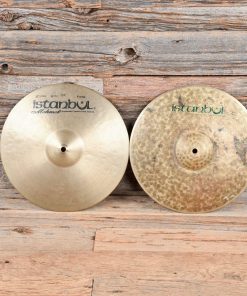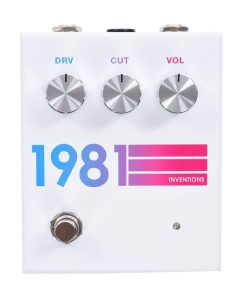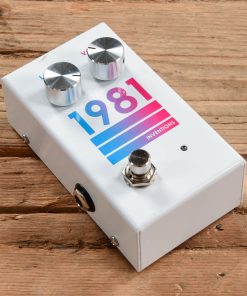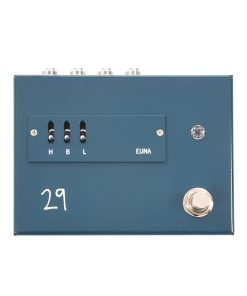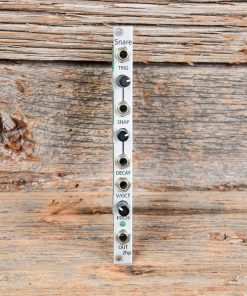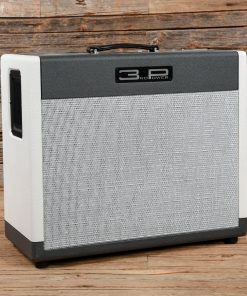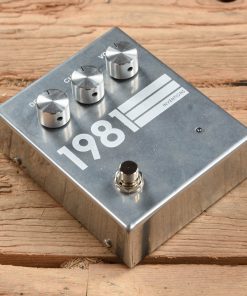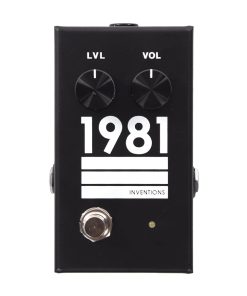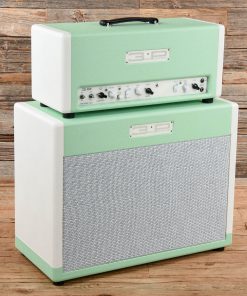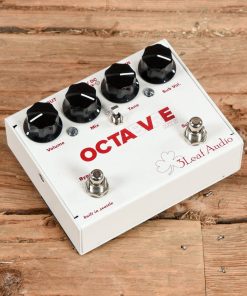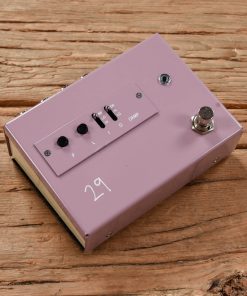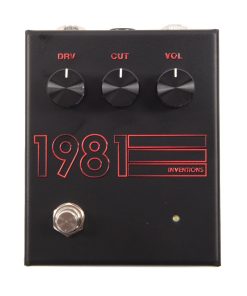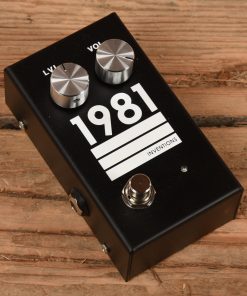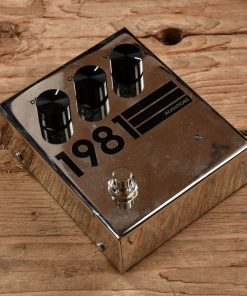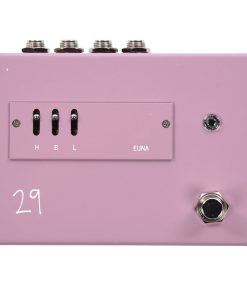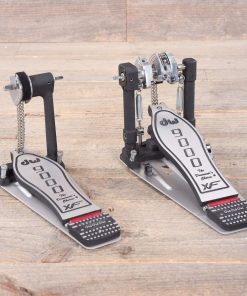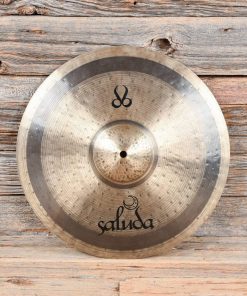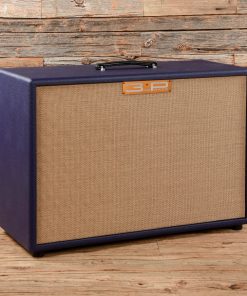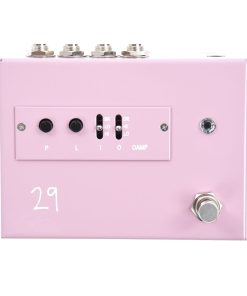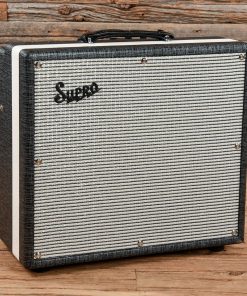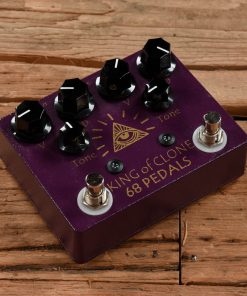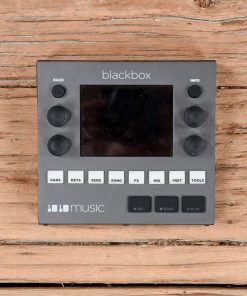Alexander Pedals Syntax Error 2 Pedal Alexander Pedals
$ 299,00 $ 119,60
Alexander has equipped the Syntax Error2 with six unique sound modes, each designed to create a wide variety of tones. Turn the MODE knob to select a new sound mode, then use the A B X Y knobs to tune the sound to your liking. You can tap the MODE knob to access the ALT controls page, for access to four extra control functions.
Every sound mode has a common set of controls:
- SAMP: Sample Crusher, reduces bit depth and sample rate at higher settings.
- PITCH: Sets the pitch shift interval from -1 octave to +1 octave, in semitones.
- P.MIX: Sets the mix of the pitch shifter effect from dry to fully wet.
- VOL: Sets the overall volume of the effect, unit is at 50%.
- TONE: Sets the overall brightness of the sound.
Each sound mode also has its own unique controls, accessed on the MAIN controls page.
- STRETCH MODE – This mode records the input signal into a sample buffer, and then plays it back in real-time. Great for glitchy delay effects, random reverse, or freaky feedback.
- PLAY sets the playback speed and direction, with forward at 0% and reverse at 100%. Middle settings will slow down and pitch down the audio.
- SIZE sets the sample buffer size, shorter buffers will sound choppy.
- FEED controls the amount of sampled signal fed back in to the buffer, for repeat and echo effects.
- AIR MODE – Grainy, lo-fi reverb effect similar to very early digital and analogue reverberation devices. Early reflections and slow build times make this a unique textural tool.
- SIZE controls the decay time and simulated size of the reverb chamber effect.
- SOFT sets the diffusion amount, higher settings are smoother sounding.
- PDLY controls the pre-delay time before the reverb effect occurs.
- RING MODE – Balanced “ring” modulation effect, adds extra frequencies to the original tone that are mathematically related but not harmonically related. Wild.
- FREQ controls the carrier frequency of the modulator. This frequency is added and subtracted from the input.
- RAND applies a random frequency for “sample and hold” dial-tone effects. Sounds like a very sick robot.
- DPTH sets the range of the RAND modulation.
- CUBE MODE – Math-based cubic distortion and fuzz effect, with tunable resonant filter.
- DRIV controls the distortion drive amount, higher settings also add some octave fuzz
- FILT sets the resonant filter cutoff frequency
- RESO tunes the resonance of the filter, set to minimum to bypass the filter effect
- FREQ MODE – Frequency shift effect, adds or subtracts a set frequency from the input signal. Like pitch shift but all of the intervals are broken. It’s horrible.
- SHFT frequency shift amount, smallest shifts are in the center of the range
- FEED controls feedback, increases intensity of the shift and delay effects at high settings
- DLAY sets delay time after the shift effect. Set to minimum for phaser-like tones, set to maximum for spiral echo
- effects.
- WAVE MODE – Time based modulator, used for chorus, vibrato, flanger, and FM effects.
- RATE sets the modulation speed, from very slow up to the audible band. At higher speeds the modulation is in the audio band and sounds pretty weird.
- DPTH controls the amount of modulation. We let you modulate it all the way, don’t complain if it gets gnarly.
- FEED applies feedback to the modulation, higher settings sound more like flange and lower settings more like chorus.
Prompt shipping and expert packing
We offer a broad range of shipping options thanks to our long-standing partnerships with UPS, FedEx and DHL. Our warehouse staff will package every item to our exacting specifications. Your goods are thoroughly checked and properly secured before shipping. We deliver to thousands of customers every day in a variety of countries. This shows our commitment to becoming the largest online retailer on the planet. The warehouses are located located in Europe in the same way as they are in the USA.
Note: Orders containing more than one item will be assigned a distinct processing time for each item.
Prior to shipment, we check the item thoroughly before sending the items. The majority of orders are shipped within 48 hours. The delivery time should be between 3-7 working days.
Returns
The stock is dynamic and we cannot control it completely because of the fact that many parties are involved, which includes our warehouse and factory. The actual stock levels can fluctuate at any moment. It is possible that your order may be out of stock after the order is placed.
Our policy runs for 30 days. If 30 days have passed in the past since you purchased however, we're unable to give an exchange or refund.
To be returned, it must be unopened and in the same condition as when you received it. The item should be in its original packaging.
Related products
Drums and Percussion / Cymbals / Hi-Hats
Effects and Pedals / Overdrive and Boost
1981 Inventions DRV Overdrive White Hyperfade 1981 Inventions
Parts / Amp Parts
920D Custom JB-CON-CH-BK Upgraded Replacement ’62 Jazz Bass Concentric Control Plate 920D Custom
Effects and Pedals / Overdrive and Boost
Effects and Pedals / Overdrive and Boost
Keyboards and Synths / Synths / Eurorack
Amps / Guitar Combos
3rd Power Amplification British Dream Combo 3rd Power Amplification
Effects and Pedals / Overdrive and Boost
Accessories / Books and DVDs
Parts / Amp Parts
920D Custom ES335-V Upgraded Replacement ES-335 Wiring w/Oil Filled Capacitors 920D Custom
Parts / Amp Parts
920D Custom JB-C Upgraded Replacement Wiring Control Plate For Fender Jazz Bass 920D Custom
Effects and Pedals / Overdrive and Boost
Accessories / Merchandise
Amps / Guitar Cabinets
3rd Power Amplification Dual Citizen 2-Channel 40-Watt Head w/ 2×12 Cab 3rd Power Amplification
Parts / Amp Parts
920D Custom LP-JP Les Paul Twenty-One Tone Wiring Upgrade w/Four Push/Pull Pots 920D Custom
Effects and Pedals / Octave and Pitch
Effects and Pedals / Wahs and Filters
Parts / Amp Parts
920D Custom JMH-VINTAGE Pre-wired Harness for Offset Jazzmaster Guitar 920D Custom
Effects and Pedals / Preamps
Effects and Pedals / Overdrive and Boost
1981 Inventions Special Edition Stranger DRV Overdrive Pedal 1981 Inventions
Effects and Pedals / Overdrive and Boost
Effects and Pedals / Overdrive and Boost
Effects and Pedals / Overdrive and Boost
29 Pedals Special Run Crunch Berry EUNA Elite Unity Amplifier Input Driver 29 Pedals
Drums and Percussion / Parts and Accessories / Drum Parts
Drums and Percussion / Cymbals / Crash
Amps / Guitar Cabinets
3rd Power Amplification 2×12″ Guitar Speaker Cab 3rd Power Amplification
Effects and Pedals / Overdrive and Boost
Amps / Guitar Cabinets
1695T Black Magick 25-Watt 1×12″ Guitar Combo Chicago Music Exchange
Parts / Amp Parts
920D Custom JB-CON-C Jazz Bass Control Plate Chrome/Black Knobs & Series/Parallel Toggle 920D Custom
Effects and Pedals / Overdrive and Boost
Effects and Pedals / Controllers, Volume and Expression
Parts / Amp Parts
920D Custom ES335-JP Wiring Harness for Gibson/Epiphone ES-335 w/Four Push/Pulls 920D Custom



